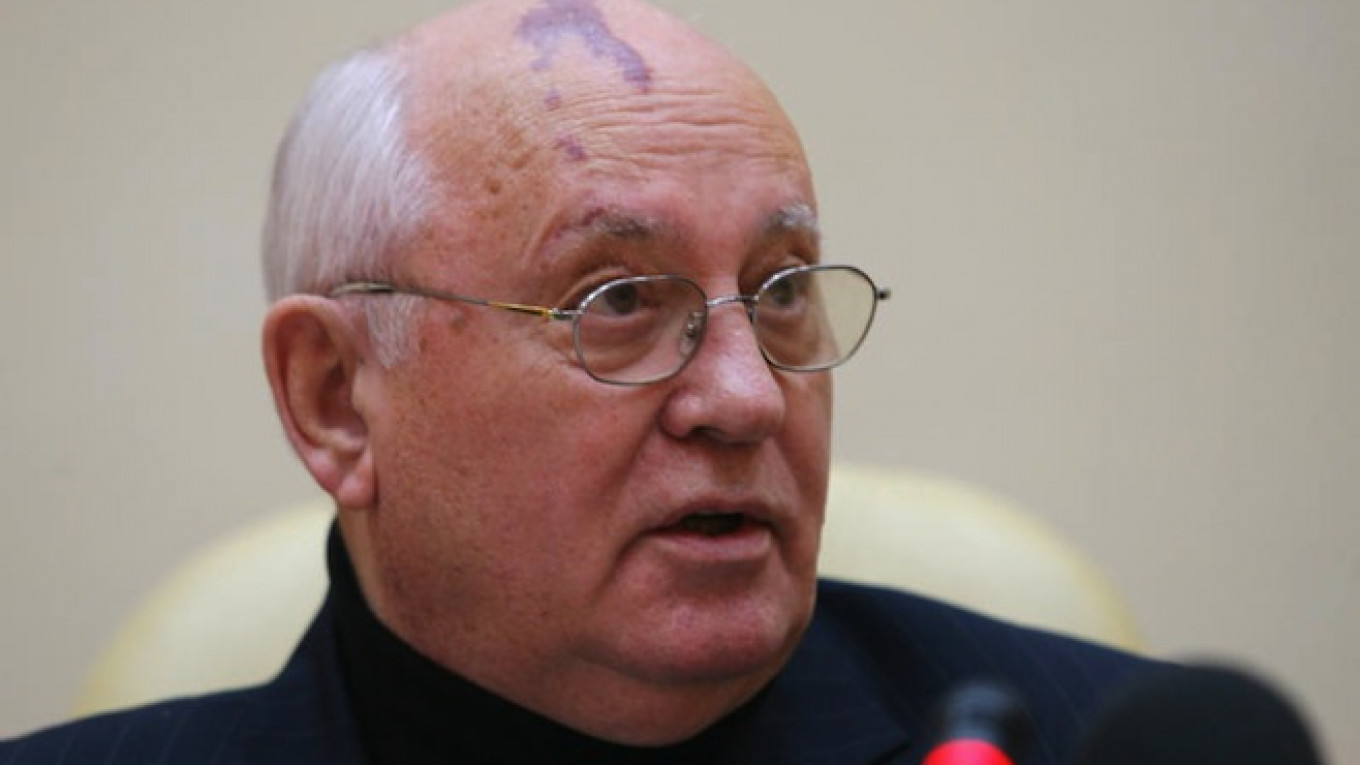Several State Duma lawmakers have asked for an investigation to be opened against former Soviet President Mikhail Gorbachev for his role in the 1991 collapse of the U.S.S.R., a news report said.
Five lawmakers from the pro-Kremlin United Russia faction, the Communist Party and the Liberal Democratic Party have sent a request to Prosecutor General Yury Chaika asking him to check the events surrounding the union's dissolution, Izvestia reported Thursday.
The lawmakers say the then Soviet leadership — headed by Gorbachev — acted illegally to bring about the collapse, despite more than 77 percent of voters casting ballots in March 1991 in favor of preserving the Soviet Union.
They also say that recent political protests, which in February led to the overthrow of the Moscow-backed administration in Ukraine and brought to power a new government that Russia considers illegitimate, call for a review of the Soviet collapse.
"An assessment of today's institutions of power requires a thorough and accurate legal analysis of the events of 1991," said Yevgeny Fyodorov, a deputy from the ruling United Russia party.
"We are still reaping the consequences of the events of 1991," said Mikhail Degtaryov of the Liberal Democratic Party. "People in Kiev are dying and will continue to die at the fault of those who many years ago at the Kremlin made a decision to break up the country."
Ukraine declared its independence from the Soviet Union in August 1991, shortly after hardline communists attempted a coup in Moscow against then-President Gorbachev.
A formal agreement to break up the Soviet Union was signed three months later by the leaders of the Soviet republics of Russia, Ukraine and Belarus at a meeting in which Gorbachev did not take part.
A Message from The Moscow Times:
Dear readers,
We are facing unprecedented challenges. Russia's Prosecutor General's Office has designated The Moscow Times as an "undesirable" organization, criminalizing our work and putting our staff at risk of prosecution. This follows our earlier unjust labeling as a "foreign agent."
These actions are direct attempts to silence independent journalism in Russia. The authorities claim our work "discredits the decisions of the Russian leadership." We see things differently: we strive to provide accurate, unbiased reporting on Russia.
We, the journalists of The Moscow Times, refuse to be silenced. But to continue our work, we need your help.
Your support, no matter how small, makes a world of difference. If you can, please support us monthly starting from just $2. It's quick to set up, and every contribution makes a significant impact.
By supporting The Moscow Times, you're defending open, independent journalism in the face of repression. Thank you for standing with us.
Remind me later.


